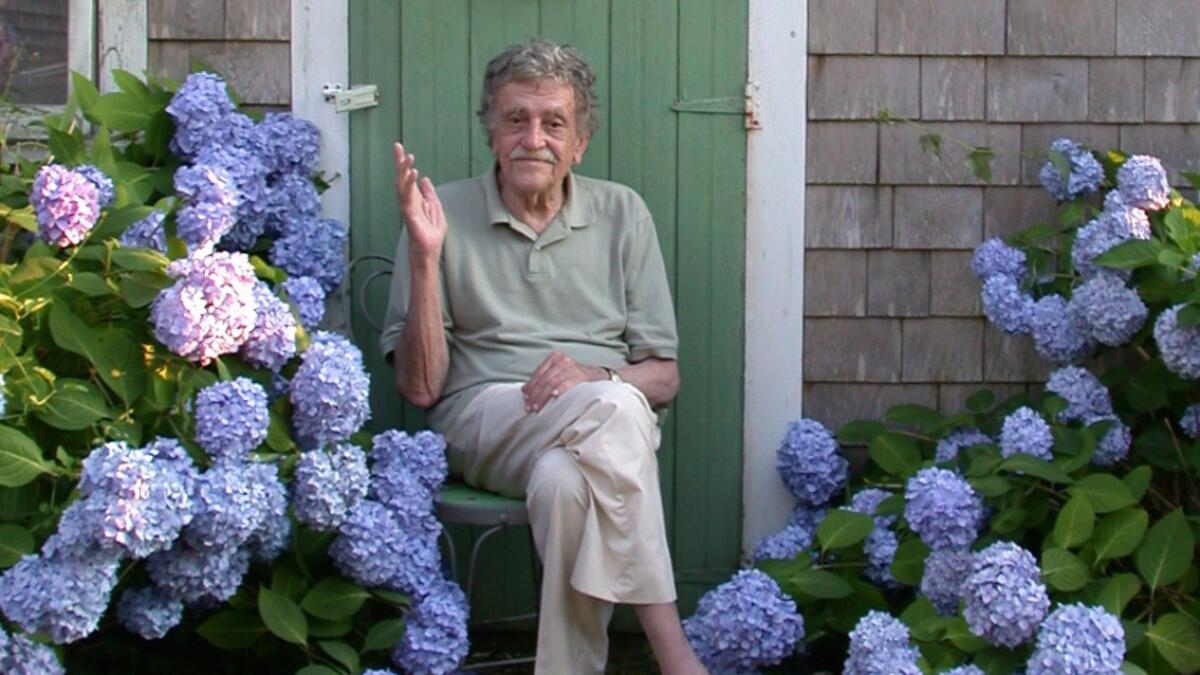Happy birthday, Fyodor Dostoevsky and Kurt Vonnegut!

Were he still with us, Kurt Vonnegut would have turned 93 today. He shares his birthday with Fyodor Dostoevsky, born 194 years ago.
On Nov. 11, 1821, Fyodor Dostoevsky was born in Moscow. And exactly 101 years later, 5,000 miles away, Kurt Vonnegut was born in Indianapolis. Though separated by a century and an ocean, the two iconoclastic novelists had something in common: brilliant careers marked by obsessions with philosophy and morality.
Those themes are prevalent in Dostoevsky’s “Crime and Punishment,” first published in 1866. The novel, which remains a staple of required-reading lists, follows young Raskolnikov, a former law student living in squalor in St. Petersburg.
Throughout the book, Raskolnikov tries to justify to himself, and the reader, the murder of an elderly pawnbroker for her money. “The old woman was a mistake perhaps, but she’s not the point! The old woman was merely a sickness,” the young man thinks. “It wasn’t a human being I killed, it was a principle! So I killed the principle...”
Dostoevsky revisited morality in his final novel, “The Brothers Karamazov,” generally regarded as his major work. The book tells the story of an unhappy Russian family comprising a cruel, rich father and his four sons, each of whom have designs on their father’s fortune.
Dostoevsky’s obsession with suffering is clear in the novel. “Listen, if everyone must suffer, in order to buy eternal harmony with their suffering, pray tell me what have children got to do with it?” asks one of the sons, Ivan. “It’s quite incomprehensible why they should have to suffer, and why they should buy harmony with their suffering.”
Pain, torment and morality were all themes Vonnegut worked with, too. He’s perhaps best known for his novel “Slaughterhouse-Five,” a brutal World War II satire that reverberates to this day.
In one of the best-known passages, a character reflects on the young men who are sent off to fight the war: “You know — we’ve had to imagine the war here, and we have imagined that it was being fought by aging men like ourselves. We had forgotten that wars were fought by babies. When I saw those freshly shaved faces, it was a shock. ‘My God, my God’ — I said to myself, ‘It’s the Children’s Crusade.’”
Vonnegut was known for his sense of humor, but it was a dark one — he urged his readers to be kind to one another, even as he held out little hope for the future of the world. And he believed that literature came from suffering. In his essay “A Man Without a Country,” he wrote, “Do you realize that all great literature is all about what a bummer it is to be a human being? Isn’t it such a relief to have somebody say that?”
It’s not a stretch to say that Dostoevsky, though a hundred years Vonnegut’s senior, influenced the oddball writer from Indiana. Consider this passage from “Slaughterhouse-Five”: “There is one other book, that can teach you everything you need to know about life ... it’s ‘The Brothers Karamazov’ by Fyodor Dostoevsky, but that’s not enough anymore.”
The two great authors didn’t share a country, a language or even a philosophy. But they did share a fierce originality, and a canon that will almost certainly be studied for centuries to come.
More to Read
Sign up for our Book Club newsletter
Get the latest news, events and more from the Los Angeles Times Book Club, and help us get L.A. reading and talking.
You may occasionally receive promotional content from the Los Angeles Times.








